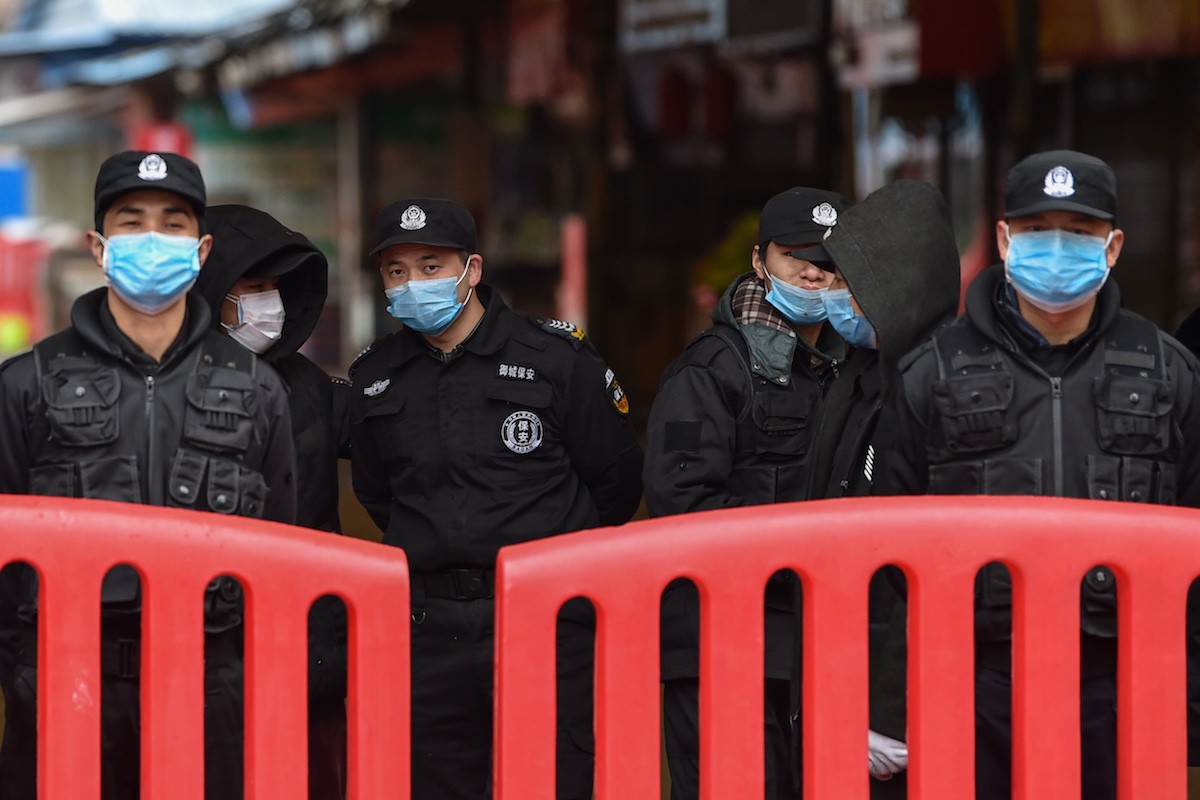Following confirmation of two coronavirus cases in China’s northwestern Xinjiang region, experts fear the internment camps where nearly 1.8 million Uyghurs and other Muslim minorities are believed to be locked up could be a fertile breeding ground for the growing epidemic.
On Jan. 23, Chinese state media reported that two men from Xinjiang who had traveled to Hubei’s capital Wuhan, where coronavirus was first likely transmitted to humans, were confirmed to have contracted the virus, Radio Free Asia (RFA)’s Uyghur service reported.
Those reports come as Chinese authorities ramp up efforts to put a cap on the epidemic, that as of Jan. 24 has officially killed 25 people and infected 830. Unofficially, the number of infected is believed to be 1,072, the BBC reports.
Concern has grown with the approach of the Chinese New Year, Jan. 25 when hundreds of millions travel domestically and internationally. Following limited efforts to contain the spread of the virus Beijing and Hong Kong have now cancelled some large-scale events. More stringent measures in Wuhan and other cities in Hubei, including a halt on public transport, have been implemented.
However, as noted in a recent RFA report, the sprawling network of camps where Uyghurs and other Turkic Muslims are being detained in Xinjiang could serve as a virtual incubator for the virus.
“Guarding against epidemics was one of the first requisites in [the] Zhu Hailun manual on setting up camps,” James Millward, a professor of Chinese History at Georgetown University in Washington, wrote on Twitter in reference to the so-called “China Cables”, which included the first publicly available manual for operating the camp system in Xinjiang.
“But cramped conditions, poor hygiene, cold, stressed immune systems — this could be a massive disaster. PRC [People’s Republic of China] needs to send internees home from camps, coerced labor barracks!” RFA cites Millward as saying.
Dolkun Isa, the president of the Munich-based World Uyghur Congress exile group, told RFA that overcrowding and “filthy conditions”, in addition to poor diet, a lack of medical care, and torture, had already led to a weakening of detainee’s immune systems and the contraction of serious illnesses.
Conditions are such that at one camp alone, 150 deaths were reported over a six-month period in 2018.
Isa said facing a coronavirus outbreak in those circumstances “could put the lives of millions of people at stake.”
“China should do everything in its power to prevent the spread of the Wuhan virus into any camps because the consequences will be catastrophic, resulting possibly in the deaths of tens of thousands of Uyghurs arbitrarily detained in the past three years.”
Apart from China, cases of coronavirus have also been reported in Japan, South Korea, Taiwan, Thailand and the United States.
On Jan. 22, World Health Organization director-general Tedros Adhanom Ghebreyesus said it was still too early to declare a global health scare.
“This is an emergency in China,” Tedros said. “But it has not yet become a global health emergency. It may yet become one.”
